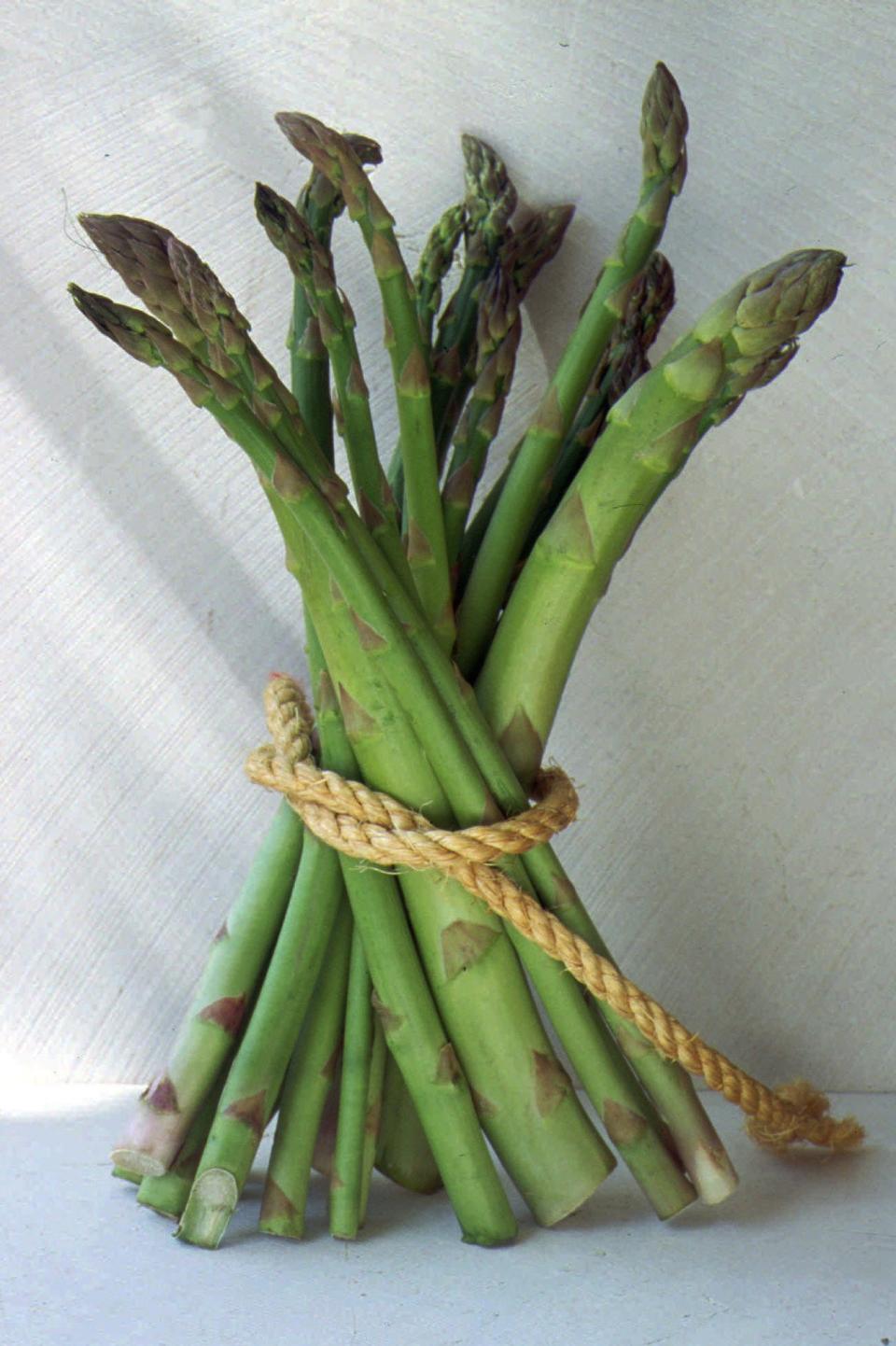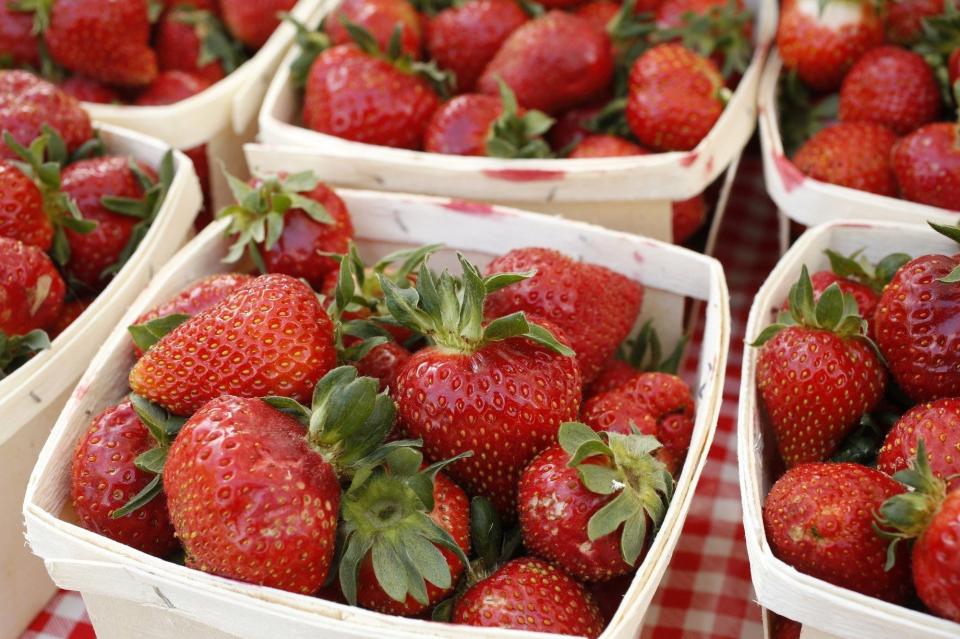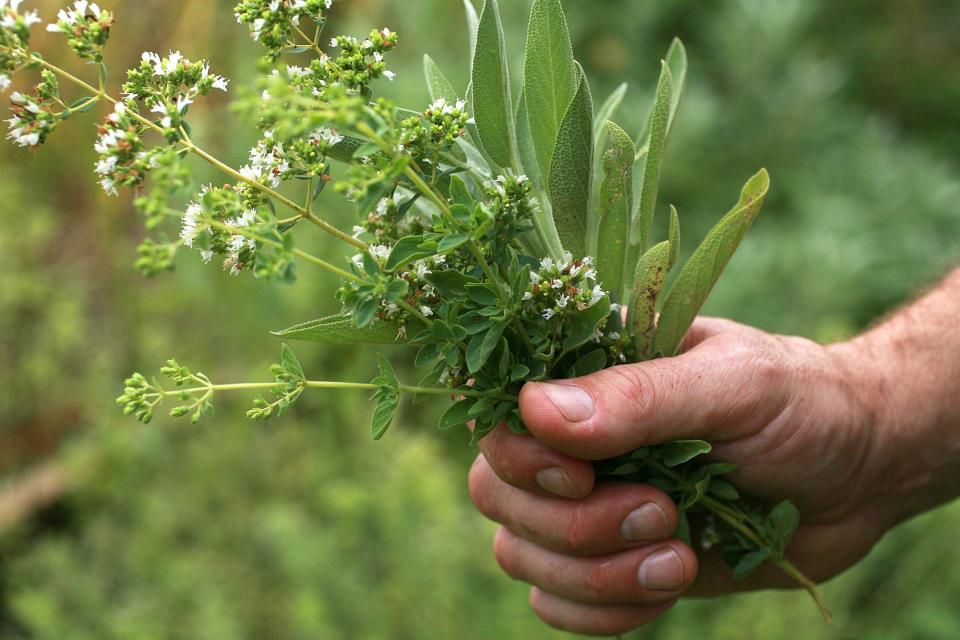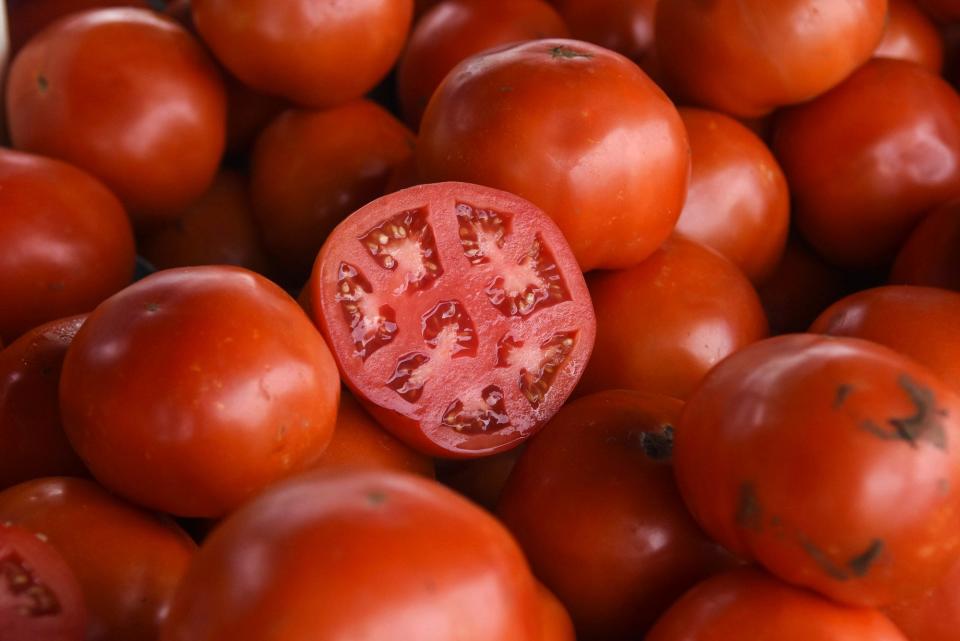Tips for how to store your fresh fruits and vegetables from the farmers market
Unless you're going to gobble up everything you got at the farmers market as soon as you arrive home, you're going to have to store that produce somehow.
Though some hardy vegetables such as onions and potatoes do best in a cool, dry, dark pantry, more often you're going to be using the refrigerator.
But don't plan on just throwing bags of produce into the fridge and forgetting about them.
“Each item will have its own separate preparation for the refrigerator,” said Candace Heer, who works at the Ohio State University Extension in Morrow County and is part of an Ohio State team of experts on food preservation who have been writing and revising factsheets on preserving Ohio produce.
Key to storing all produce in the refrigerator is first to know how long a particular item will last there, and second, not to wash the produce before putting it in the fridge, because storing it wet promotes the growth of bacteria.
Here are tips for best practices on a variety of items:

Asparagus
For asparagus, one of the prime farmers market finds this time of year, Heer recommends that buyers should “wrap the bottom ends of the stalks in a damp paper towel and then put them in unsealed food-grade storage bags in the refrigerator.”
Just before cooking, the asparagus should be washed under cool, running water.

Strawberries
Strawberries and other berries, also prized finds this time of year, should be refrigerated immediately — but carefully.
“Place them loosely in a shallow container before you put them in the fridge. Be careful not to bruise them, because bruising them is going to break them down and shorten their shelf life,” she said. “You want a shallow container so that air can circulate. We don't want them to crush each other. Treat them with gentle care. And put them in a moist area of the refrigerator like the hydrator, the fruit and vegetable keeper.”
Strawberries: Gardening: Quick to bear fruit, strawberries a well-suited addition to home gardens
Before you eat them, you will need to wash them.
“Only wash as many berries as you need at any particular time,” Heer recommended. “Pull out what you want and need, and then leave the others in the fridge. Wash them gently, and don't let them soak in water. Don't use soap, liquid detergent or bleach, because those absorb into the fruit.”
Even with gentle care, berries will last only one to three days in the refrigerator before they start to spoil. If you have a big haul and would like to preserve it, Heer recommends freezing the berries by placing them, individually and not stacked, on a piece of parchment paper on a tray. Once they are fully frozen, they can be transferred to plastic bags or containers specifically designed for the freezer.

Herbs
Herbs, widely available this time of year, can also be stored in the refrigerator.
“If you can't use them right away, trim the stems off and put them in a glass with an inch of water,” Heer said. “Place them in the refrigerator, but with air circulating. Change the water daily, like you would do with flowers. You don't want any gunkiness. If you do that, they can last up to a week in the refrigerator.”

Tomatoes
Some produce, such as tomatoes, can be left on the counter to ripen, but Heer recommends against the practice of lining tomatoes up on the windowsill in the sun, because it can lead to overheating and decay. Once the tomatoes are ripe, they can either be eaten or stored in the refrigerator, though their quality will gradually deteriorate.
Landscaping: Gardening: Avoiding mulch madness — tips for where and how to use it
Shoppers who want specific advice can contact their local Ohio State Extension office, or go to ohioline.osu.edu, which has a vast searchable database of factsheets on how to use and store produce typically grown in Ohio, including peppers, squash, peaches, greens, Brussel sprouts, cauliflower, beans, cherries and much more.
Those interested can also learn how to blanch and freeze various types of produce, and the more ambitious can learn about canning and other methods of preserving.
“It's about planning ahead a little bit. When I bring stuff home, I don't want to be overwhelmed with a whole lot. I want to make sure I'll end up using what I got. If you find something that you really like, maybe you can get twice as much next time, because you feel comfortable preparing it and you have that crisper ready to go, and you don't have it stuffed full of other things you didn't have time to clean out,” Heer said.
“What's great about farmers markets is that there's a next one around the corner in a couple days. You don't have to bring the motherlode home!”
margaretquamme@hotmail.com
This article originally appeared on The Columbus Dispatch: Ways to properly store fresh fruits and vegetables

